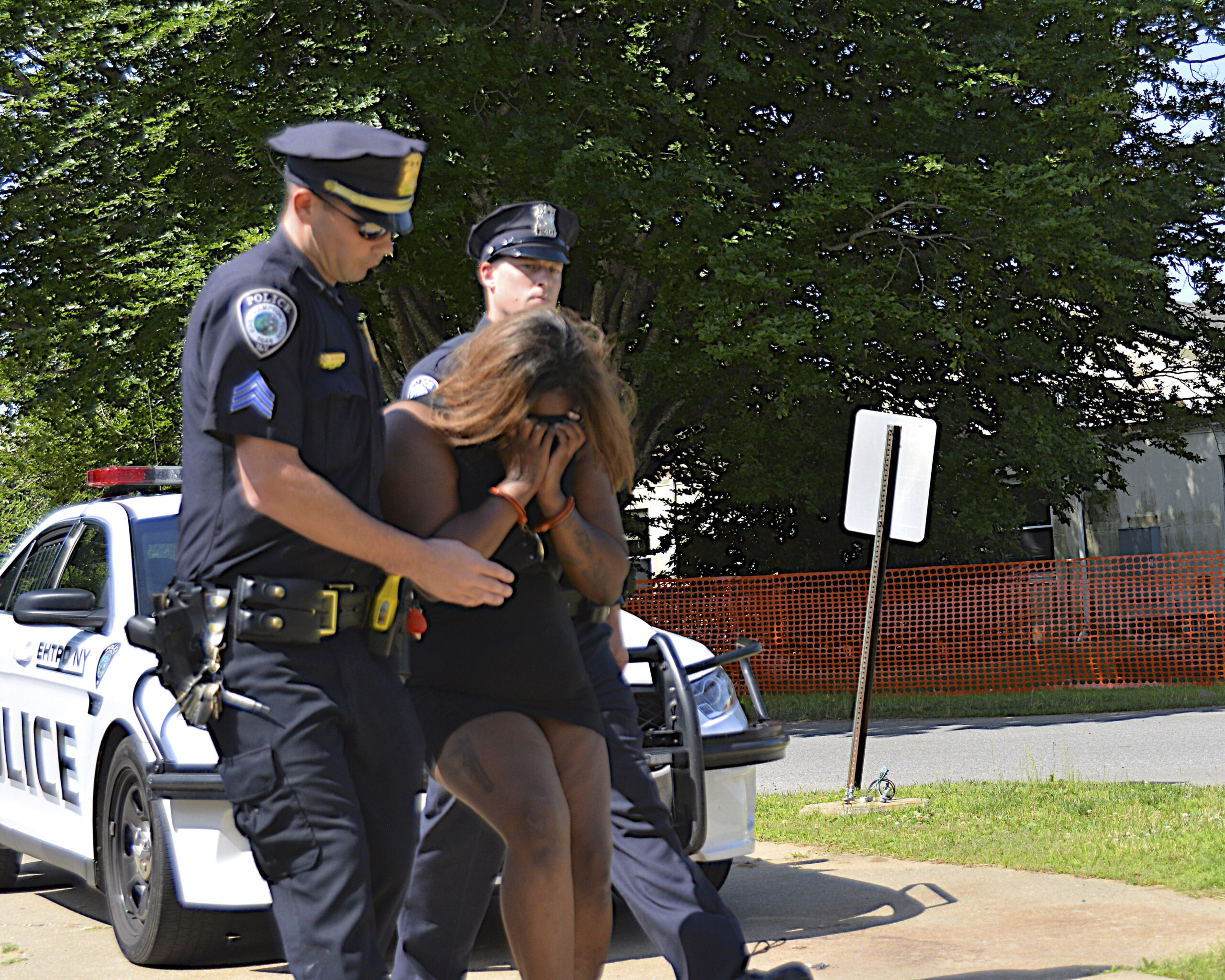
With the murder trial of a Montauk man, Joseph Grippo, slated to begin Monday, July 18, in State Court in Riverside, a second trial on a murder in Montauk may not be far behind.
Tenia Campbell of Medford was arrested in Montauk just one week after Grippo in June 2019. As with Grippo, she has been incarcerated in the Suffolk County Jail since her arrest.
She is charged with a double homicide, accused of murdering her 2-year-old twins, Jasmine and Jaida Campbell, on June 27, 2019.
Authorities said Campbell placed the girls in her Chrysler minivan and drove to Montauk. Her mother contacted the police at about 2:30 that afternoon after receiving a call from an emotionally distraught, suicidal Campbell, who reportedly said that it was “too late,” and that she had “killed my babies with my bare hands.”
This triggered a countywide search for the minivan, which ended at around 4 p.m. when an East Hampton Town Police officer located it inside the entrance to the County Park at Third House. Efforts to revive the unconscious toddlers failed.
Campbell reportedly begged the police officer to shoot her.
Campbell has been examined by a forensic psychiatrist retained by the defense counsel, led by John Halverson. Dr. Alexander Sasha Bardey found that Campbell was suffering from a mental illness or defect at the time of the incident. Halverson contends that his client is not guilty of the murders, in the legal sense, since she was suffering from that mental defect at the time.
This week, District Attorney Ray Tierney’s office has their own doctor examining Campbell. According to Tania Lopez, spokesperson for the D.A.’s office, if that doctor’s finding contradicts that of Bardey, the case will go to trial.
The defense of not guilty by reason of mental defect can be a difficult one to present to a jury.
On the same day Campbell was arrested in 2019, a jury in Manhattan was deciding the fate of a former resident of Georgica Estates in East Hampton, Thomas Gilbert Jr. Gilbert, who had been suspended from the Maidstone Club in East Hampton where both his parents were members, due to a violent outburst against an employee, murdered Thomas Gilbert Sr. in January 2015 in the father’s Beekman Place apartment in Manhattan, then staged the scene to make it appear as if the man had committed suicide, before fleeing the building.
Gilbert’s attorney, Arnold Levine, also argued that Gilbert was suffering from a mental illness or defect at the time of the crime. Gilbert’s legal team also brought in Bardey. But, in that case, the defendant refused to cooperate with his own doctor, making the mental defect argument that much harder to establish.
Even under the best of circumstances, Levine said on the phone on Tuesday, the insanity defense is a very tough sell for a jury. The burden of proof of insanity rests on the defense. The defendant must be proven by a preponderance of the evidence to have been insane at the time of the crime.
Before murdering his father, Gilbert had sent his mother, Shelley Gilbert, on an errand, to buy him a can of Coke.
“Him going and asking his mother for a Coke, knowing that she doesn’t keep Coke in the house,” Levine said. “That she would have to go out for it. That swung the last holdouts [on the jury].”
The jury in Manhattan found Gilbert guilty of his father’s murder.
Premeditation can sway a jury, Levine said. “He knew what he was doing,” he said. “He wanted her out of the house. There was a plan.”
But premeditation and insanity are not mutually exclusive, Levine pointed out. “If he is making a plan because he thinks his father is the devil, he has to get rid of his father, and he doesn’t want his mother around to see this, you still have an insanity defense. Premeditation is not even an element of New York murder.”
But the instructions required by state law to be given to the jurors by the judge in the case are quite vague when it comes to the finding of insanity or mental illness, Levine said.
“It is hard for people to grasp the insanity instruction. It is very basic, but very confusing at the same time. It is too basic in that it doesn’t really encompass all that can come in, and the real psychological aspects of it. It makes it very, very difficult to win an insanity defense. It is why it is raised rarely, and they win at trial extremely rarely. The burden is on the defense.”
Levine pointed out that there was one recent successful case where the defense was used. Last month, also in Manhattan, a jury found Richard Rojas not guilty of the 2017 murder of Alyssa Elsman, 18, from Michigan, who was visiting New York City, as well as the attempted murder of many other victims. Rojas had driven his car onto a 7th Avenue sidewalk in Times Square, striking more than 20 people as he did so.
One of Rojas’s attorneys, Glenn Abolafia, said on Tuesday that Rojas was suffering from extreme schizophrenia, and was “self-medicating” using a variety of drugs, including the hallucinogenic drug ketamine.
Rojas heard voices, Abolafia said, voices that commanded his actions.
The prosecution, he said, “spent a long time saying you can’t drive down the street in Manhattan and not be aware of your surroundings.”
But, at the same time, Abolafia said, it was clear that Rojas’s actions were not premeditated. “There wasn’t any evidence that he got up and planned” the attack, Abolafia said.
Both Levine and Abolafia emphasized that a not guilty verdict in such a case should not be seen as a “get out of jail free” card. In fact, for most defendants, such a verdict is the beginning of a long cycle of treatment in a facility designed to handle mentally ill patients who are dangerous to themselves and/or to others.